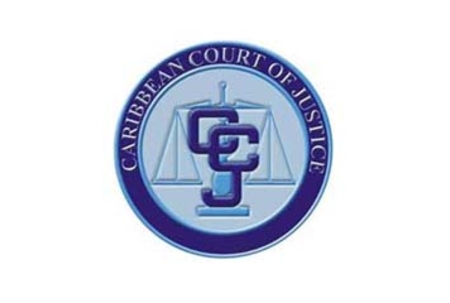The Caribbean Court of Justice (CCJ) recently rendered judgment in favour of the appellant over three siblings pertaining to land at Vryheid’s Lust on the East Coast of Demerara.
A CCJ release yesterday said that the Court had allowed the appeal of Sahadeo Prashad in the matter of Sahadeo Prashad v Basmattie Persaud, Bhagmattie Persaud and Coblall Persaud [2022] CCJ 5 (AJ) GY.
The CCJ heard the appeal on 14 October 2021.
The release said that Sahadeo Prashad brought an action for possession of Lot 32 Section AA, Vryheid’s Lust, East Coast Demerara against his siblings, the Persauds claiming that he had been the legal owner of the land since 1985. In response, the Persauds argued that Prashad obtained the transport (title) by fraud. They pleaded in the alternative that their parents entered into an agreement with Prashad to acquire the land. According to this alleged agreement, Prashad would apply for the mortgage – as the parents were unable to do so – and have transport to the land passed to him. All mortgage payments would be funded by his parents and when they were complete, Prashad would then transfer the land to his parents. The Persauds contended that this alleged agreement amounted to a “constructive trust”.
It was further stated that at the Guyana High Court, Prashad had objected to the Persauds’ legal standing to counterclaim, on the basis that they did not have any rights in relation to the land. That prompted an application by the Persauds to join the estate of their father, Harold Prashad, but the High Court Judge made an order refusing that application (“the interlocutory order”). The High Court ultimately ruled in favour of Prashad and the Persauds appealed to the Guyana Court of Appeal. Their appeal was against the judgment of the High Court and the interlocutory order. The Court of Appeal found that the appeal against the interlocutory order ought to have been made to the Full Court, but nevertheless, entertained it. The Court of Appeal also found that there was a constructive trust in existence so at the end of the proceedings, the court made an order to join the estate of the father.
The CCJ, in its judgment authored by Justice Barrow, found that the Persauds had no legal standing because they appeared before the courts in their personal capacities. According to the Court, the proper parties to assert a right to the land would have been the estates of the deceased parents.
Neither the estate of the father, who died on 29 June 2007, nor of the mother, Raywantie Prashad, who died on 17 July 1997, was made a defendant to the claim. The claim was purely for possession and mesne profits, brought against the three siblings. On 25 September 2012, the day before the scheduled trial in the High
Court, the defendants applied to join the estate of the father as a defendant, but this application was refused. The trial began in March 2013 and judgment was delivered on 25 February 2016.
Further, the CCJ found that, in the first place, the Court of Appeal had no jurisdiction to hear the appeal against the interlocutory order as that appeal could have only been entertained by the Full Court. In relation to the Court of Appeal’s order to join the estate of the father, the CCJ stated that this order served no purpose as it was made after the High Court proceedings ended and after the appeal had been heard.
And in a concurring judgment, justices Wit, Rajnauth-Lee, and Burgess, noted that in Guyana, there can only be full and absolute ownership of immovable property. As decided in earlier cases, there cannot be duality of ownership and, therefore, there is no division of a legal interest and an equitable interest in land. As such, a constructive trust under the English system of law, which recognises two types of owners; a legal owner and a beneficial owner, is problematic with respect to Guyana’s law on immovable property.
The Court therefore allowed the appeal and set aside the orders of the Court of Appeal.
The Court was presided over by Justice Wit, sitting with justices Rajnauth-Lee, Barrow, Burgess, and Jamadar. The Appellant was represented by Robin Stoby SC, Mohamed Khan, and Kashir Khan. The Respondents were represented by Rinee Kissoon and Satyesh Kissoon, the release added.





